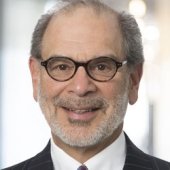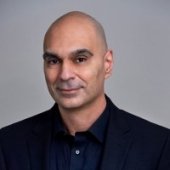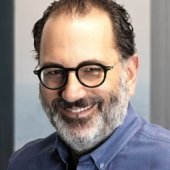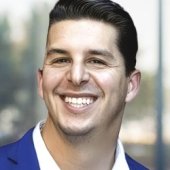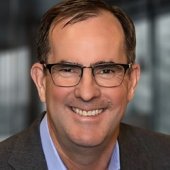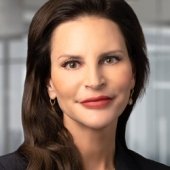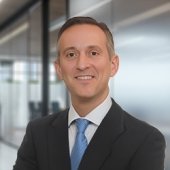The crime of our time: Ex FBI agent turned NEFCC CEO takes on elder fraud
IN BRIEF
- “With respect to AI, clearly, our adversaries do not have a board of governance that requires ethical use of AI. They use it however it suits them.”
- “When you’re talking $160 billion leaving the country and going to organized crime groups overseas, what are they doing with that money? They’re reinvesting it in affecting more Americans.”
- “The corporate participation is obviously the key to this, and when we first started NEFCC, it was fantastic to find what we call founding members who finally just said, ‘Enough is enough.’”
In this VISION by Protiviti Interview, Brady Finta, Founder & CEO of National Elder Fraud, a not-for-profit with the mission to reduce elder fraud in America, which the FTC estimates could be more than $70 billion a year. Finta spent nearly a quarter century in the FBI as a Special Agent and the last seven years as a Supervisory Special Agent before launching NEFCC earlier this year. He sits down with Constantine Boyadjiev, Managing Director and leader of Protiviti’s Global Regulatory and Compliance Analytics data science practice, to talk about how we tackle “the crime of our time,” elder fraud in America.
In this interview:
2:57 – The scope of the problem
7:06 – A very good crime model
12:25 – Why corporate participation is key
The crime of our time: Ex FBI agent turned NEFCC CEO takes on elder fraud
Joe Kornik: Welcome to the VISION by Protiviti interview. I’m Joe Kornik, Editor-in-Chief of VISION by Protiviti, a global content resource examining big themes that will impact the C-suite and executive boardrooms worldwide. Today, we’re joined by Brady Finta, Founder and CEO of National Elder Fraud, a not-for-profit with the mission to reduce elder fraud in America, which the FTC estimates could be more than $60 or even $70 billion a year. Brady has spent nearly a quarter century in the FBI as a special agent and the last seven years as a supervisory special agent before launching NEFCC earlier this year. He will sit down today with my Protiviti colleague, Constantine Boyadjiev, Managing Director and Leader of Protiviti’s Global Regulatory and Compliance Analytics Data Science Practice. Constantine, I’ll turn it over to you to begin.
Constantine Boyadjiev: Great. Thank you, Joe, and equally, many thanks for joining us today, Brady.
Brady Finta: Thank you. I’m glad to be here.
Boyadjiev: Awesome. Great. Let’s jump straight to it, then. Brady, you certainly have had a very interesting background, nearly a quarter of a century in the FBI as a special agent, the last seven years of which as a supervisory special agent, so you come as a very seasoned professional with deep operational experience. I’m sure in your line of work, you have witnessed firsthand both how perpetrators actually operate, as well as, of course, the very deep ramifications and socioeconomic impact of their crimes, which certainly is not victimless. In fact, when we think about who it’s against, these perpetrators exploit a highly vulnerable class in our society, the elderly. Can you tell us why you launched the National Elder Fraud Coordination Center earlier this year and what specifically is the organization’s mission?
Finta: Thanks for asking. The mission’s pretty simple, help reduce elder fraud in America. That’s what we really want to get down to. Why did I launch NEFCC? We call it NEFCC. It’s those victims. Let’s face it, these are our parents and our grandparents. Sometimes losing generational wealth, it’s absolutely destroying lives and it’s at such a scale that I just kind of feel like we have to do more. I think that was my general thought process when I left the bureau and put together NEFCC.
Boyadjiev: I could personally empathize. Having elderly parents myself and seeing actually attempts at even some scams and schemes, which certainly are getting more progressive and creative. The Federal Trade Commission estimates that the overall cost of fraud to elderly and the older consumers in general is about $70 billion annually. That’s a staggering number. With the first wave of Boomers turning about 80 or so this year, I suspect this problem is only going to get worse over the next decade plus.
Finta: I think the first thing we need to do as a society is agree on this scope. I am here to tell you, the reason the FTC had to estimate the $70 billion is because dramatic underreporting. If you’re walking down the street and somebody walks up to you and holds a gun to your head and steals your wallet, you’re reporting that. Right? But if somebody steals $100,000.00 out of your bank account based on a scam where they’ve misled you or coerced you, or whatever the case may be, my experience is around 80% to 85% of people never report that. I do think that number of $70 billion is accurate. Honestly, if you speak of that relatively in context, it’s greater than the GNP of 100 countries in the world. It’s a massive number. That volume and the way it touches all Americans, like you just said, you know your parents have touched this kind of scam world. I don’t know anybody that hasn’t. Name another crime in America that’s like that. I don’t know of one. Also, name another crime in America that goes up by 25% to 30% a year. I don’t know of another one of those either.
So, when we talk about the problem, I think we need to really put it into perspective and call it the crime of our time. I think that’s where we are. When you talk about the types of scams and frauds, unfortunately, it’s kind of limitless. Some of the really common ones out there that are working all day every day right now, tech support scams, romance scams, investment scams particularly on the crypto side of things, government impersonation scams, pretty common, and the good old grandparent scam. I’ve done a few cases on those. All of these enhanced via sophisticated techniques and experience. They work really well. And I think that’s one of the things that we do have to keep talking about also is the fact that underreporting is so pervasive out there. Why is that? There’s shame, right? There’s fear that people are going to take my financial freedoms away from me. There’s a lot of reasons why people underreport. I think we need to keep reminding people, it’s not your fault. This is not your fault. These guys are good. They’re very good.
Boyadjiev: Yes, no, absolutely. The absolute numbers and the trends to which you point to are pretty alarming. Again, just emphasizing this is transborder as well and transnational. It’s not kind of a US phenomenon. Unfortunately, it’s trending upwards. I know you coming from a law enforcement background, you’ve been advocating about collaboration and cooperation between law enforcement and the private sector as one of the key principles of success in tackling such kind of multi-dimensional threats. What are some of the challenges that you see to that collaboration? Potentially, there’s a lot of vast data that needs to be collected, processed, analyzed, and then how could we overcome some of these challenges?
Finta: It’s not easy. I think one of the reasons that this crime is so successful is not only do they have a good model. The process of either investigating or deterring or aggregating data on this is remarkably difficult for the reasons you said. So many sectors are involved and so many jurisdictions, at least from a law enforcement perspective. One of the first cases we did in San Diego when we started the San Diego FBI Elder Justice Task Force was a grandparent scam where three of the victims were in San Diego County. I think during the course of that case, the agents probably identified 350—that’s was probably a small amount of victims relative to that fraud—but all of them were in every other state in America. The bad guys were picking up money all over the country. Money was being laundered all over the world. The jurisdictional issues and putting all that together, even just from the law enforcement perspective, which is relatively small, were really difficult to overcome. It gets even more difficult when you talk about where the data is held to successfully pursue these criminal organizations. Your telcos, your tech companies, your banks, your wealth management companies, your retailers, your nonprofits—it’s everywhere. Even within those sectors, it’s one of the great things about this is so many companies in America are actually working on this problem, but it’s so siloed. Even within a particular sector, are the partners in that sector sharing enough data to put that picture together? Because everybody has their tiny little piece of that puzzle but we really can’t see the whole puzzle most of the time when it comes to the criminal organization, the victims, the money laundering, and the fraud cycle.
I think the problem—we talked about how big it was—I think it’s too big for any one sector. It’s too big for the government. It’s amazing and hard to say that because I think the United States of America can do almost anything it puts its mind to, but it’s too big for the government. It’s too big for the private sector. It’s too big for any nonprofits. I don’t think it’s the key, I think it’s the only successful way that we’re going to wrap our hands around this problem is with true collaboration.
Boyadjiev: I could see NEFCC’s role, vision and mission to maybe in some ways be acting even as a central magnetic force, a lot of stakeholders here, and protagonist in making this successful journey and overcoming some of these challenges, so terrific to hear that. On the topic maybe of data, a good transition into another area I wanted us to double click on, is the AI topic, artificial intelligence. It’s almost in everything we do and discuss today. Can you talk to us a little bit about the challenges that AI presents, especially sub-components of AI. There’s so much done these days with agentic AI and generative AI and large language models, and a lot of these emerging technologies that are on the forefront, which are used for often unintended purposes. They form part of the arrows and the quiver of malicious actors as well. We see very sophisticated phishing, vishing, smishing, deep fakes that look pretty real to the naked eye. Various other schemes from ransomware, malware, identity assurance and fraud, account takeover, just to name a few. Is there a world where we not only keep up, but hopefully stay ahead of the bad actors through AI?
Finta: I’m generally a positive person, so I would say yes. We got our work cut out for us, though. Here’s the thing, I do feel positive about the state of affairs in essentially America’s private sector and the US government—all the federal law enforcement agencies and people. The good thing is nobody wants fraud. Our companies don’t want fraud, our financial institutions, our government. I think we can agree on that and essentially create almost like a joint venture environment where we agree we all have the same basic mission—protect our clients, protect our people, protect our families, and fight fraud.
With respect to AI, clearly, our adversaries do not have a board of governance that requires ethical use of AI. They use it however it suits them and they can troubleshoot it as much, “Hey, let’s try this on 100,000 people, let’s see what works. Let’s turn around the part that works, improve it, and try it on another 100,000 people.” In order to keep up, we’re going to need the hustle and we’re going to need to combine thoughts on this. I think this is one of those circumstances where the whole will be much, much greater than the sum of its parts. The thing is, and the beautiful thing is, all these companies in America, they all have anti-fraud efforts, vulnerable persons programs, people looking out for their clients, their affiliates. Nobody knows their data like them. So, when they have folks picking apart that data and coming up with the best pieces that can add to a puzzle, as long as we can stack those pieces up, lay them out, and put them together, I think we have a good chance of being successful.
Boyadjiev: Maybe in just closing, can you just share your thoughts about why you think it’s so critical we get this right? It’s a tough nut to crack, clearly.
Finta: No doubt.
Boyadjiev: But why it’s so critical?
Finta: It’s funny—well, maybe not funny. When I sat my mom down when I was still in the FBI and talked to her about, “Hey, Ma, these are some of the most recent frauds. These are some of the ways that they drag you in. These are some of the techniques they use. Whatever you do, don’t do this, don’t do that.” One of the things I told her is that if you don’t recognize the phone number, don’t answer the phone. If you didn’t specifically inquire for something on the computer, don’t click on a pop-up. Don’t ever download anything. Rightfully so, she kind of pushed back a little bit like, “What? It’s not kind of the world I want to live in.” Don’t ever trust anyone? Has it really gotten that bad? To tell you the truth, a lot of people are endorsing the zero trust model, and I think it has gotten that bad. I think customer trust for our companies and our institutions is incredibly important. Whatever we can do to build that corporate trust, we should. One of the things that I think increases trust among our population is to say, “Hey, you guys are working together. You’re working together with the government and you’re working together with these non-profits because you guys, you have agreement that this is something that affects us all and we all want to stop it.” I think increasing corporate trust is really important. I think also agreeing that this is a national security issue. When there’s $70 billion, now we’re just talking about elders, among fraud losses in total, we’re talking probably about $160 billion.
When you’re talking $160 billion leaving the country and going to organized crime groups overseas, what are they doing with that money? They’re reinvesting it in affecting more Americans. A lot of those folks are in adversarial countries to the United States. So, I think elevating this to a national security issue for all of us is probably a good idea, and I would like to say really briefly, we talk about this collaboration a lot. I go to a lot of conferences where everybody talks about how we can work together. But I think instead of doing that on an ad hoc basis and every once in a while specific to an event or a crisis, we need something that’s always there, that’s structural. That becomes part of our culture that we share. That’s why we built NEFCC. So when tech companies and financial institutions and telcos and retailers sit in the same room and say, “Hey, I know something about those bad guys, what do you think about this?” That type of collaboration, that’s the future. That’s the future.
The corporate participation is obviously the key to this and when we first started NEFCC, it was fantastic to find what we call founding members who finally just said, “Enough is enough. We want to participate. We want to launch this thing.” They invested in getting us started. Our partners from the beginning have been AARP, Amazon, Google, and Walmart. Not only got this ball rolling in terms of the process in our first few cases, but even since then, I think seeing the real value here, we’ve had some other companies come on very recently to include Microsoft, Meta, Capital One Bank, TIAA, and Chainalysis, all full NEFCC members putting their corporate might together in the fight against elder fraud.
Boyadjiev: What can people do? What’s the best way to engage?
Finta: I appreciate that, Constantine. We need more members. NEFCC needs kind of a corporate herd immunity on this problem, so please take a look at our website. It’s called fightelderfraud.org. There’s a little Get in Touch button on there and come join the fight.
Boyadjiev: Thank you, once again, for the conversation today. Joe, I’ll turn it back over to you.
Kornik: Thanks, Constantine. Thanks, Brady. And thank you for watching the VISION by Protiviti interview. On behalf of Constantine and Brady, I’m Joe Kornik. We’ll see you next time.
Brady Finta is founder & CEO of National Elder Fraud, a non-profit with the mission to reduce elder fraud in America. Brady is a former FBI Supervisory Special Agent. Born into a military family in San Diego, Brady’s spent six years as an Infantry Officer in the U.S. Marine Corps before joining the FBI in 1998. With 12 years as an FBI SWAT Operator and three years as an FBI SWAT Supervisor, he has demonstrated strong leadership and a commitment to public safety. He has made significant contributions on the international front supporting the FBI’s mission serving in Afghanistan, Ukraine, and Indonesia.
Constantine Boyadjiev is managing director and leader of Protiviti’s Global Regulatory and Compliance Analytics data science practice. As a member of Protiviti leadership team, Constantine is responsible for architecting and delivering Protiviti’s risk, fraud, and compliance analytics offerings across the globe. He brings extensive experience across industries, and has held executive roles in financial services and advisory ventures, having built robust risk, fraud management and analytic enterprise capabilities.
Did you enjoy this content? For more like this, subscribe to the VISION by Protiviti newsletter.


